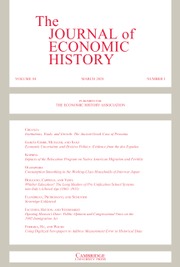The Soviet Union and the Construction of the Global Market
Oscar Sanchez-Sibony reveals the origins of our current era in the dissolution of the institutions that governed the architecture of energy and finance during the Bretton Woods era. He shows how, in the second half of the 1960s, the Soviet Union sought to dismantle the compartmentalized nature of Bretton Woods in order to escape its material ostracism and pave a path to global finance and exchange that the United States had vetoed during the 1950s and 1960s. Through the construction of a set of pipelines that helped Europe's energy regime change from coal to oil and gas, the Soviet Union succeeded in developing market relations and a relationship with Western capital as durable as the pipelines themselves. He shows how a history of the development of capitalism needs to integrate the socialist world in bringing about the new form of capitalism that regiments our lives today.
- Reintegrates the socialist world into the history of capitalism
- Provides the reader with a comparative assessment of European countries' approaches to international political economy
- Makes economic history accessible to readers without specialized training in economics
Reviews & endorsements
'Oscar Sanchez-Sibony liberates the study of the Soviet Union by stepping outside the shadow of the American academy. In The Soviet Union and the Construction of the Global Market, he circles the USSR to see it from the perspective of southern and western Europe. He finds that the force driving global markets in the 1960s was none other than Soviet traders and diplomats. An impressive and convincing work that sheds new light on globalism today.' Kate Brown, Thomas M. Siebel Distinguished Professor of the History of Science, Massachusetts Institute of Technology
'The commercial and financial barriers of Bretton Woods starved the Soviet Union of that most precious of resources, the US dollar. In the 1960s, the Soviets began to break down these barriers, exporting oil and tapping global capital markets. With a shrewdness reminiscent of Dos Passos, Sanchez-Sibony reveals how the Soviets eroded Bretton Woods from the East and, in doing so, helped seed our own unsettled times.' Stefan J. Link, Associate Professor of Economic History, Dartmouth College
'Oscar Sanchez-Sibony's new book is about the role of the Soviet Union in, as he puts it, 'the dismantling of our previous era.' To describe it as a contribution to the new wave of economic history does not do it justice. It is that, but also so much more - more capacious and more precise, more provocative and more satisfying, and engagingly written too.' Lewis H. Siegelbaum, Jack and Margaret Sweet Professor Emeritus of History, Michigan State University
'… an important piece of research, a reinterpretation of a well-known story and a passionate plea to finally take the Soviet Union seriously as a global market player.' Susanne Schattenberg, H-Soz-Kult
Product details
No date availablePaperback
9781108995184
258 pages
229 × 152 mm
Table of Contents
- List of Figures
- Introduction
- Prologue: The Grain Crisis, 1963
- Chapter 1. Italy, Cold War Maverick
- Chapter 2. Great Britain: Bretton Woods and the Financial Fix
- Chapter 3. Austria: Bretton Woods and the Soviet Politics of Liberalization
- Chapter 4. West Germany: Betrayal, Stagnation, and the Triumph of Capitalization
- Chapter 5. France: The Travails of Institutionalization
- Coda. Italy, Cold War Straggler
- Bibliography
- Index.










